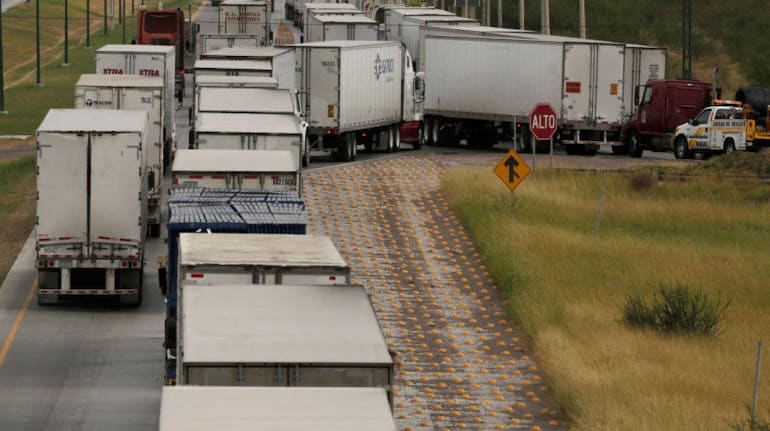



Commercial vehicle makers such as Ashok Leyland and Tata Motors dropped 4-5 percent each after media reports suggests that the government is expected to hike axle load capacity for medium and heavy commercial vehicles (trucks and tractor trailers over 16 tonne) by up to 25 percent.
While further details on the same are still awaited, most brokerages feel the move could impact demand for newer vehicles and remain an overhang on Ashok Leyland and Tata Motors in the short term till clarity emerges.
According to media reports, the new norms are likely to be announced this week. The government is likely to increase the gross vehicle weight (GVW) from 16.2 to 19 tonne for a two-axle truck, from 25 to 28.5 tonne for a three-axle trucks, from 37 to 43.5 tonne for a five-axle truck and from 44 to 49 tonne for a tractor trailer with five-axles. The new rules, if implemented, will be applied prospectively.
Reacting to the news, Nomura said the proposed truck axle load relaxation led to a sharp correction in Ashok Leyland and Tata Motors on Monday. “The impact on truck demand depends on the execution of proposed norms. If implemented on existing vehicles, then demand for new vehicles is likely to be impacted. But if it is implemented on newer vehicles, then it will be positive for short term demand,” the global investment bank stated.
Bank of America Merrill Lynch too reiterated that the proposed norms, if implemented on the current fleet, will impact demand for new trucks. “Change in norms is likely to lower existing overloading issues. The impact of these norms is difficult to gauge as it depends on state-wise implementation.” It added that the uncertainty is likely to remain an overhang on Ashok Leyland and Tata Motors’ stock prices.
The new norms could improve profitability of transporters as the load increase will facilitate higher GVW, and thus higher loading capability. In intra-state transportation, where overloading is already prevalent, CV demand would not be materially impacted by the hike in load carrying capacity, experts said.
“The overloading ban is prevalent in inter-state transportation. Thus, the new norms could have a negative impact on CV demand as the increase in vehicle load capacity will enhance truckload efficiencies,” Motilal Oswal said in a note.
Like the brokerages above, it too sees the lack of clarity around this norm leading to deferment in buying decisions in the near term. “We expect growth in CV demand to continue in FY19 and FY20, driven by pick-up in infrastructure, construction and mining activities. The mandatory scrapping of trucks should further benefit CV demand,” it added.

Discover the latest Business News, Sensex, and Nifty updates. Obtain Personal Finance insights, tax queries, and expert opinions on Moneycontrol or download the Moneycontrol App to stay updated!
Find the best of Al News in one place, specially curated for you every weekend.
Stay on top of the latest tech trends and biggest startup news.